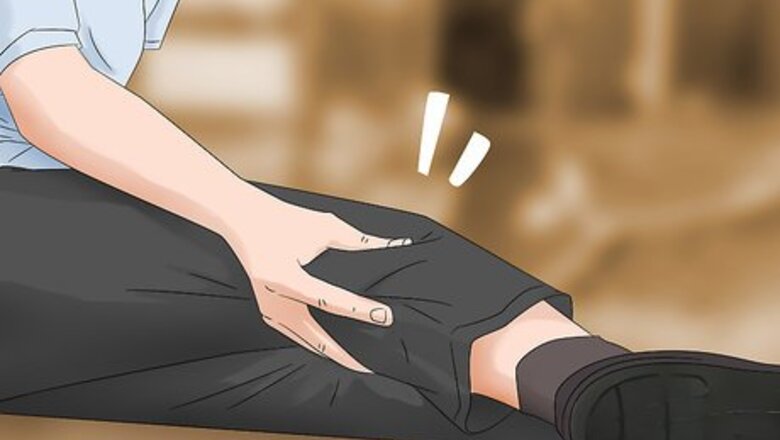
views
Checking for Injuries and Seeking Help
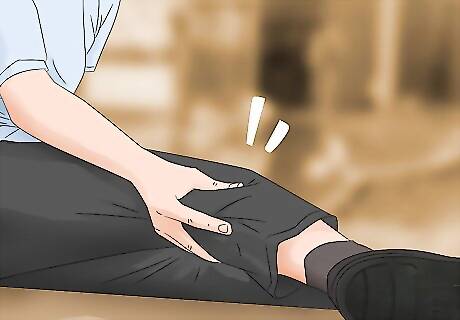
Check yourself for injuries. Make sure you’re not seriously hurt before you do anything. If you’re bleeding, elevate your injury and put pressure on it. If your injury is serious, call for help using a cell phone or try to get rescuers’ attention.
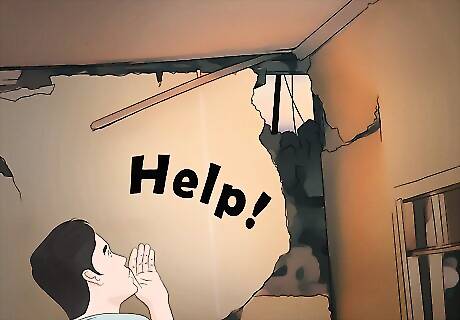
Signal for help if you’re trapped. Use a cell phone to call for help if you have one. If you can’t use a phone, try knocking loudly on something nearby until rescuers find you.
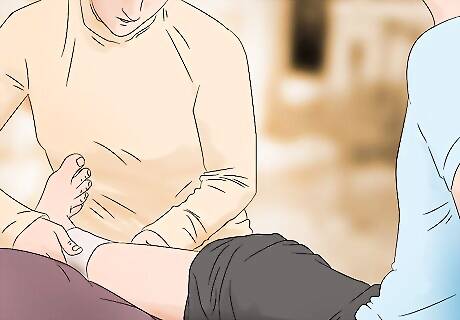
Help others around you. Look to see if there’s anyone trapped nearby or if someone needs medical attention. If there’s a first-aid kit near you, grab it and use it on minor injuries. If someone is bleeding, apply pressure to the wound and wrap the injury in gauze if you have some. If someone has no pulse, administer CPR. If you encounter someone with substantial medical injuries, seek professional medical assistance.
Getting to a Safe Location
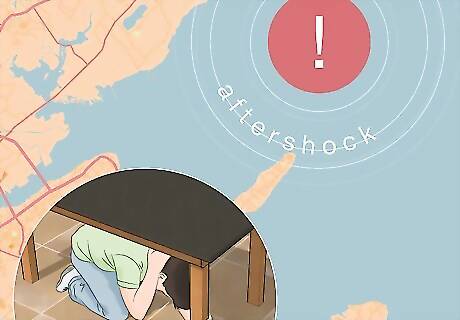
Prepare for aftershocks. Aftershocks are smaller earthquakes that follow the main shock of an earthquake, and they can cause significant damage. Expect aftershocks to occur and prepare to move to a safe location, like an open outdoor space or a structurally sound building. If an aftershock does occur, drop to the ground, cover yourself, and hold on to something until the shaking stops.
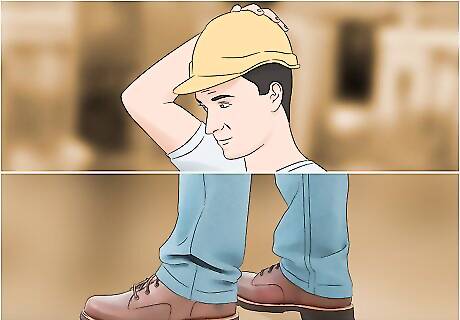
Put on sturdy shoes and clothes. Try to find a long-sleeve shirt and pants so your body is protected from glass and debris. If you have access to a hard hat, goggles, or a mask, put those on too. If you don't have access to shoes or clothes, walk around debris and fallen objects to avoid hurting yourself.
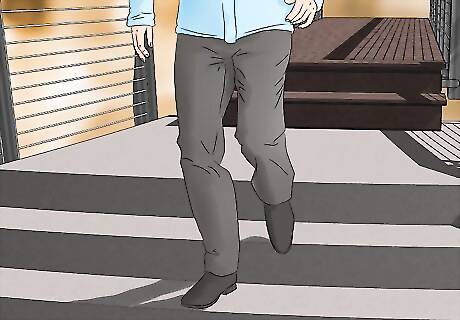
Exit the building once the shaking has stopped and you know it’s safe. The structure of the building you’re in may have been weakened by the initial earthquake, so you should exit in case of any aftershocks that could cause more damage to the building. If you’re in a high-rise building after an earthquake hits, do not use the elevators to exit. Slowly descend the stairs of the building and exit outside. If you’re in a stadium or theater, exit the building calmly, watching out for any debris that could fall on you.
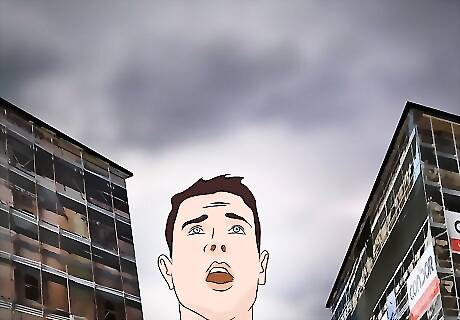
Stay put if you’re outdoors following an earthquake. Do not enter any buildings unless they have been deemed safe by authorities. Buildings that look safe could be at risk of collapse if an aftershock occurs, or falling debris inside could seriously injure you.
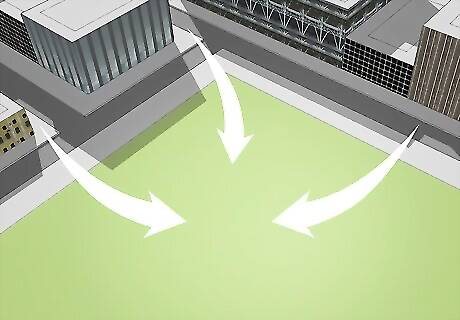
Get to a wide open space once you're outside. Avoid standing near buildings or other large objects that could fall on you if an aftershock hits. If you’re near a coast, head for high ground in case a tsunami forms after the earthquake.
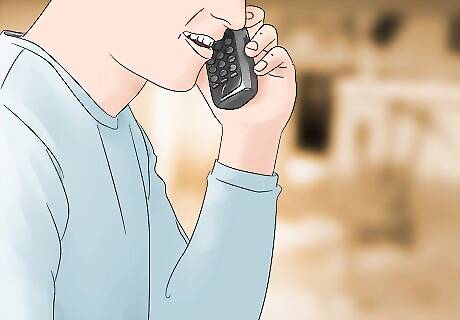
Call your family, neighbors, or a roommate if you have a cell phone. Find out if they’re alright and what the status of your home is if you're not there. Make a plan and establish a place to meet.
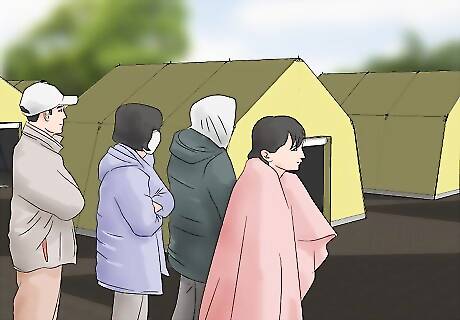
Find a local shelter if your home is unsafe to return to. If you’re not sure where the nearest shelter is, ask an emergency official nearby or see if a neighbor knows. Do not re-enter your home until you are certain that it is safe.
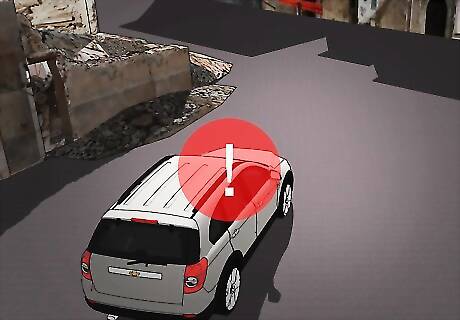
Drive carefully. Traffic lights may not be working and there could be fallen debris on the road. Clear the way for any emergency response vehicles you encounter.
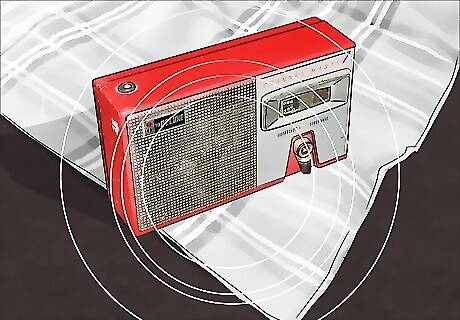
Use a battery-powered radio or television to listen to local emergency information. Follow the instructions of local officials and check in regularly for updates. You can also check social media or cell phone alerts for further information from authorities.
Checking for Damage and Eliminating Hazards
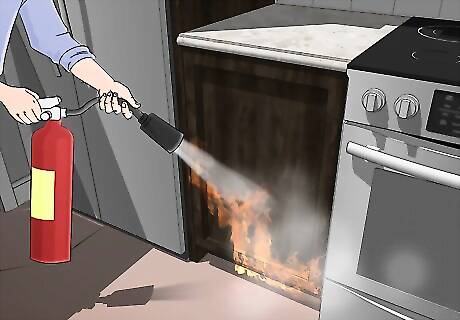
Extinguish any fires inside or outside your home. If a fire is small enough, put it out using water or a fire extinguisher if you have one available. If you encounter a large fire, contact the fire department or nearby emergency officials immediately. Prevent a fire from starting by unplugging broken lights and appliances. Don’t light any matches or open flames until you’re certain your home is safe.
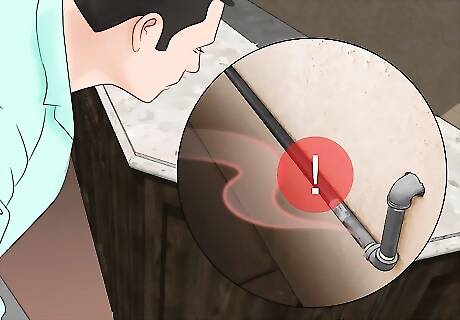
Smell for gas. If you smell gas, immediately turn off the gas valve. The smell could indicate a gas leak, which could cause an explosion or a fire.
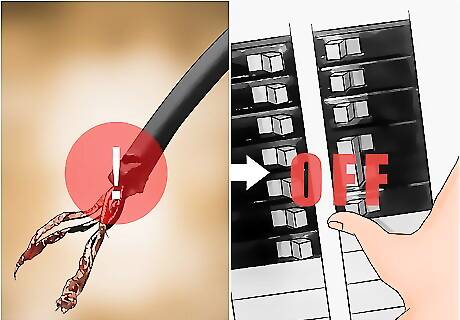
Inspect the electrical wiring in your home for any damage. If there’s damage, immediately turn off the main breaker switch. Keep the power shut off until the electrical wiring is fixed and your home is deemed safe.
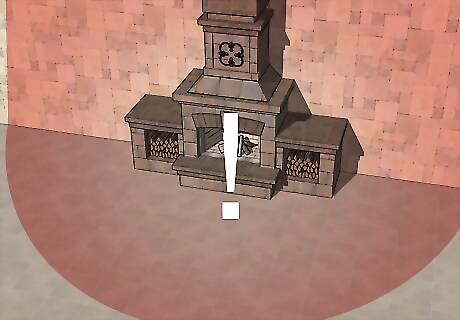
Avoid chimneys and walls made of brick. They’re at high risk of collapsing after an earthquake. Never use your fireplace after an earthquake until it’s been inspected by a professional, and keep out of rooms with brick walls.
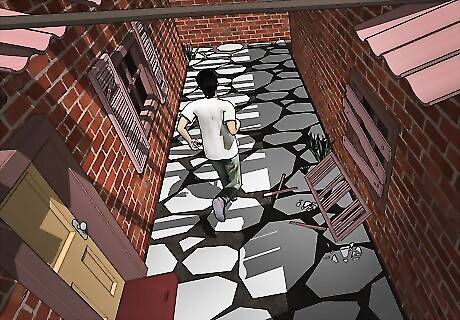
Leave if your home is unsafe. Find an open outdoor space to go to or make plans to meet up with others. Take an emergency kit with you and leave a note in clear view detailing where you are.




















Comments
0 comment